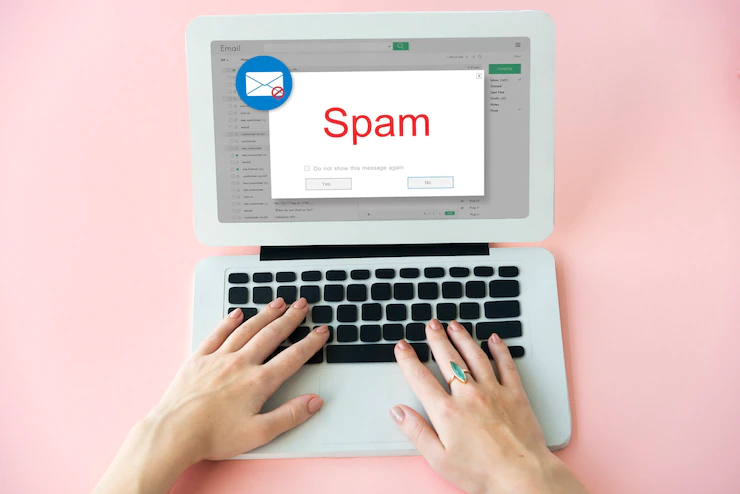What Is A Sales Objection
Is there a sales objection definition in the first place? We don’t think so. Objections in sales are a common thing. Resistance or questions from the client does not mean that you or your manager are not working well. In contrast, top sellers close the deals after handling 5-6 objections.
Dealing with objections occurs at any stage of negotiations. That’s how people are. Everyone has a fear of the unknown. Guarantees, price, quality, and the result they will receive at the end are important to any client.
The client wants to buy a solution to his problem, for example, an email delivery test or the satisfaction of any other need.
Your task as a seller is to become a trusted person. They have to trust you to buy something from you. If you buy any product in a store, the reputation of the brand is important to you, you need trust in them, quality, price, and hundreds of other details.
What Is Objection Handling?

Let’s start with the fact that this is a rather complicated process in which the experience and skills of your seller are very important, even if it is an email correspondence in which a regular email spam test will come in handy.
In the case of a problem or unsure customer, it depends on you whether you can sell a certain product.
We will give examples of good objection handling in such cases:
1. Turning an objection into a plus.
The buyer’s complaint may, in essence, be transformed into a question and addressed in a way that is advantageous to you. For instance, “Why is it taking so long for the SendGrid sender authentication?
This process was created specifically based on feedback from our customers. Such requirements give you a much better quality of work in the future, and we only want the best result for you, that’s why we have to wait.”.
2. Mitigation of objection.
The ability to concede to the client with little concern is essential. For instance, “Good question! These rumors have been spread before, but they are untrue. In fact, Folderly software is quite high quality and will last you for a very long time.”
3. Comparison of similar products.
Give the customer the chance to compare this product to others if they start to protest. Give them a chance to do the research or yourself. The only problem is: are you sure your product is the best out there?
Why Does The Proper Handling Of Email Spam Test Matter?

If the buyer is not sure about the purchase, you cannot leave him to his own devices and let him choose the product by himself. Moreover, this is your job! If you give the buyer too much freedom of choice, it can be considered that you do not care about your customers.
If the buyer is unsure about the purchase but asks questions, this is even better than the previous example. With an email spam test, you’ll know what your customer needs and deliver it right to their computer! ! This is the kind of buyer who will ask you a hundred questions but only once.
Usually, this type has a very high return rate. This is simply due to the fact that they have already done their research, asked you all the questions they were interested in, and they only have years to use the product, which they already know everything about.
Do not scare away your buyer with your annoying email – the email spam test will help you with this, which will check how relevant your email is to your situation.
Primary Types Of Objections To Distinguish Between:

We researched the sales of the email delivery product Folderly and got the top three of the most popular types of objections:
1. Objections and queries that are not that important
For example, “I need a more elegant color than this red.” Such inquiries are meant to trap the seller in an argument. It is vital to move the conversation in this situation fluidly in a different direction.
The staff is required to answer this question, but only briefly if the customer keeps asking it. After that, customers often stop grumbling and start a productive conversation. You can run a mail test for your workers for them to get the skills of talking to difficult customers via email.
2. Objections are based on the terrible experiences of friends
It is crucial for the consumer to verify whether friends who warned them about the downsides of this product were telling the truth. If this is the case, you should learn how to use the disadvantages to your advantage.
3. Hopeless objections are one of the most complicated sales objection definitions
For instance, “I recently purchased such goods,” or “I don’t wish to purchase anything at this time.” In this case, we can only briefly discuss the benefits of purchasing things from you rather than another retailer, so that the client would come to you the next time.
Budget-Related Objections As The Most Widespread Ones

It is known that a client will always value pricing. Undoubtedly, although not always, this is one of the important elements.
Dealing with customer objections will be easier if you are one step ahead. Voice the most popular objections yourself and answer them right away.
I think you may be confused by the price. It is higher than that of competitors because the product is produced by hand, not by machine, and therefore more expensive.
Running an email deliverability check and improving your email will lead the buyer to think that this product is special, unique, and of higher quality than other analogs.
And as we all know, everyone likes an individual approach. You see how we turned the price problem into an advantage in the form of product uniqueness. Be one step ahead of them!
Tip: sometimes this question can be initially avoided. Asking the customer what is most important to him in the good or service he wants to acquire before discussing the pricing or using an email test online would eliminate the need for any objection handling techniques regarding price.
General Brush-Offs Masked As Objections
“I’ll think about it” is another popular sales objection.
This phrase can be used as a denial or a wish to eliminate the sales manager more quickly. It is the seller’s responsibility to discover the buyer’s genuine motivation. He either respectfully declines or appreciates the product for the future.
Simply asking the buyer “Are you pleased with the product/service in general or do you have doubts” or using an email deliverability check can reveal their genuine motivations. If there is, let’s determine what it is specifically.
You may hear what genuinely frustrates the buyer when they respond “Yes, but…” in the discussion after the “but”. Cost, a bad prior experience, difficult circumstances, etc.
Final Words
If you have reached such a situation, it means that before that you did not sound too convincing and therefore made a mistake in your email deliverability test or at some of the previous stages.
You will eventually develop your own methods for handling sales objections, but for the time being, you may employ tested techniques. Without training, it is hard to handle sales rejections.
The hardest place to manage objections is for sales managers in call centers. Because it’s simpler to break off communication over the phone, they only get one chance to respond accurately before the potential customer hangs up.
Read Also:






















